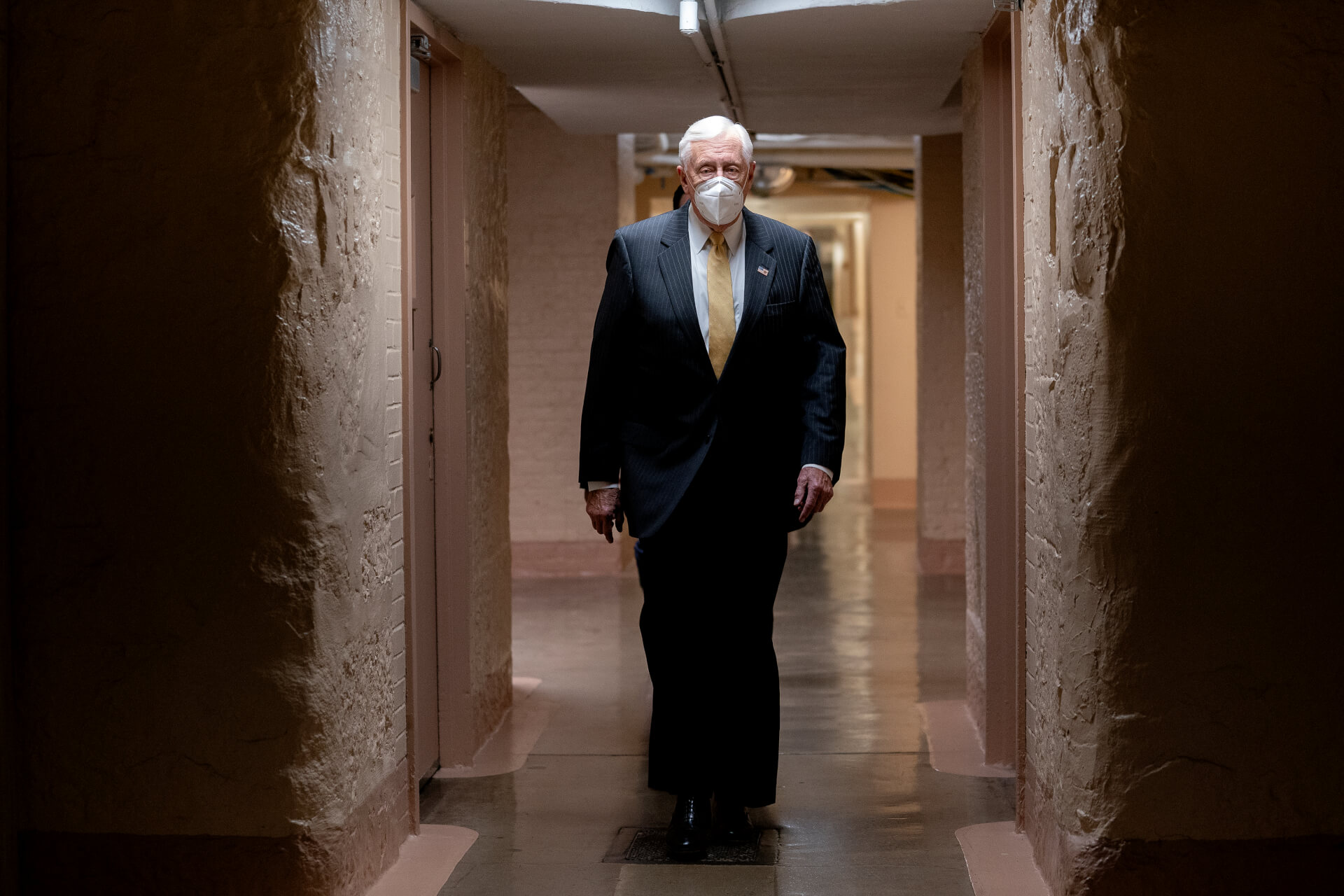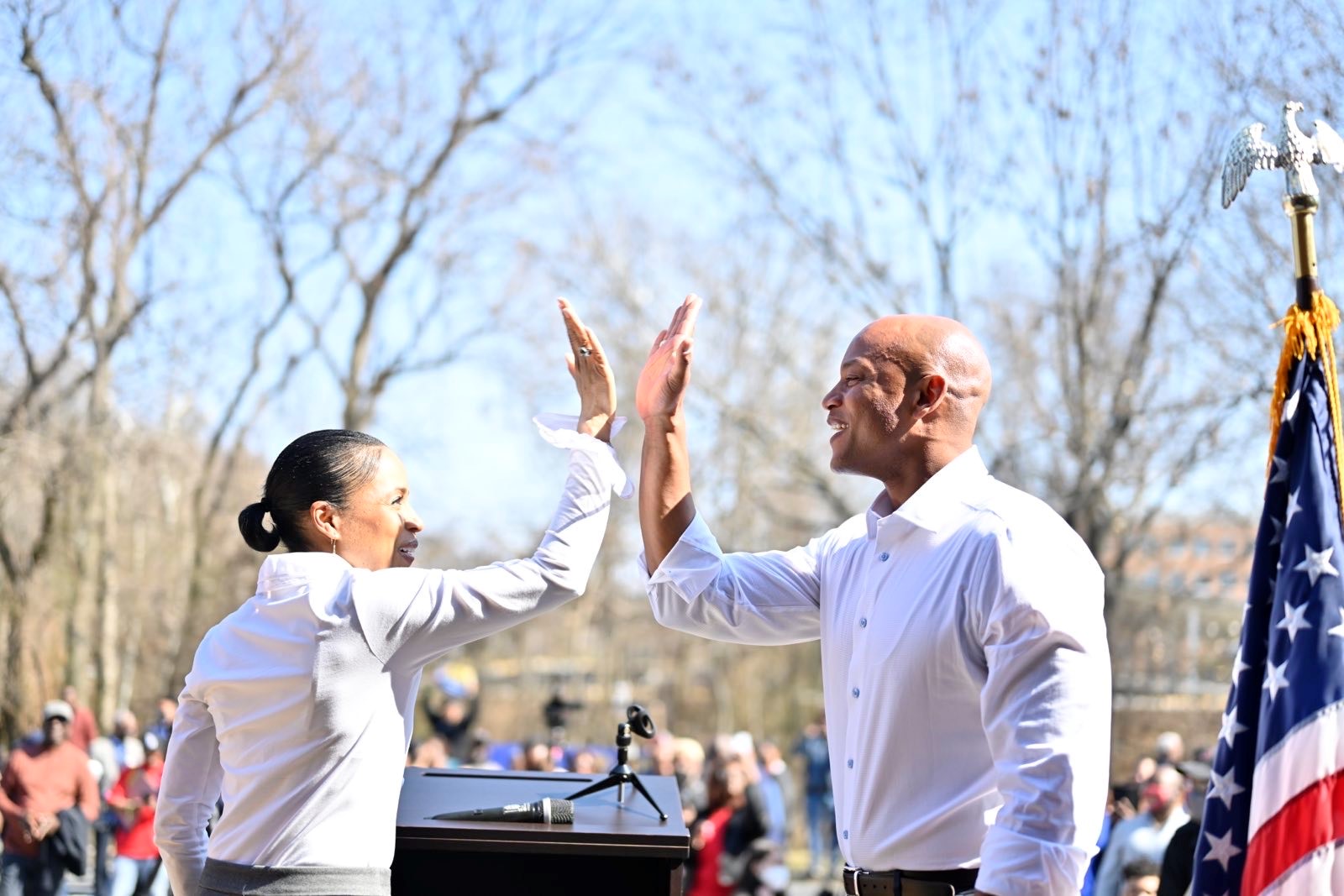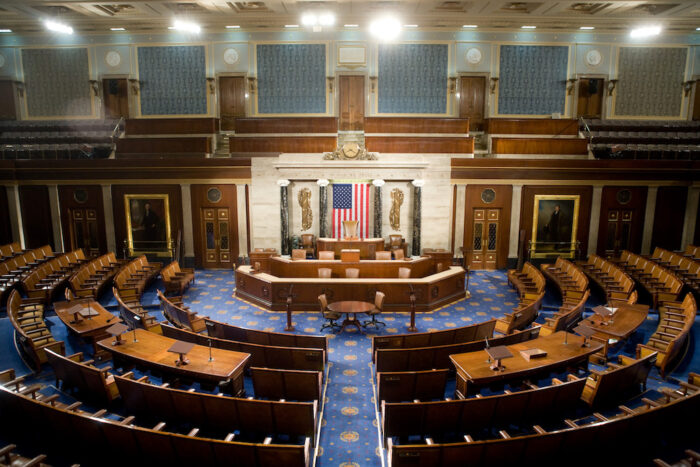GAO, Special Commission to Probe Failures That Led to Capitol Siege, Hoyer Says

U.S. House Majority Leader Steny H. Hoyer (D-Md.) said on Tuesday that a thorough review of the Jan. 6 siege at the United States Capitol is under way.
The Government Accountability Office is undertaking one review of the security failures that allowed a pro-Trump mob to storm the building and interrupt certification of President Biden’s victory.
A special commission led by retired Lt. Gen. Russel L. Honoré will probe the uprising as well. That effort will be modeled after one that led to the report the government produced after the Sept. 11 attacks, Hoyer said.
“We were not prepared” for what happened on Jan. 6, Hoyer told the Prince George’s County Council, meeting via Zoom. “There’s going to be a lot of after-action review. Very, very tough review.”
The attempt to block certification of the election and murder multiple government leaders in the line of presidential succession left five people dead, including a Capitol Hill police officer. It led to the second impeachment of President Trump, just one week later.
Hoyer referred to the invaders as “insurrectionists” and “white supremacists” who “stormed the Capitol calling for the Vice President of the United States to be hung. It was an extraordinary, unprecedented action by Americans against Americans, against democracy, against the Constitution, against our form of government.”
Hoyer, who was in the Capitol on Jan. 6, said the nation is facing its most volatile period in many decades.
“We live in a time when the confrontation and the repair to violence is probably as prevalent as any time since the Civil War,” he said. “Clearly we have people who are justifying violent action, armed insurrection, as a result of their beliefs — unfounded in fact — but nevertheless held strongly, that somehow their country is being robbed from them.”
Most Republican members of the U.S. House voted against the impeachment resolution. (Maryland’s lone Republican, Rep. Andrew P. Harris, opted to remain in his Eastern Shore district the day the vote was held.)
Majority Democrats are considering what actions to take against GOP lawmakers who have been making dangerously false and inflammatory claims, Hoyer said.
On Wednesday, they will consider a resolution stripping Rep. Marjorie Taylor Greene (R-Ga.), an outspoken advocate of false conspiracy theories, of her committee assignments. A second resolution would expel her from the House.
Hoyer said members of the Education and Labor Committee are “particularly, egregiously offended” by Greene’s assertion that the 2012 massacre of elementary school students at Sandy Hook Elementary School in Connecticut was staged.
Lawmakers will also consider censure resolutions against Rep. Louie Gohmert (R-Texas) for comments about the judiciary and Rep. Mo Brooks (R-Ala.) for his comments to the mob prior to the breach of the Capitol’s security perimeter.
Hoyer’s phone rang during the briefing and he answered. “Kevin, I’m on a Zoom call. Can I call you right back?” he said. He later identified the caller as Rep. Kevin McCarthy (R-Calif.), the House minority leader, who was scheduled to speak with Greene about the vast trove of conspiracy theories she has adopted, causing headaches for GOP leaders in the process.
During a later conversation, about COVID-19 vaccines, the Majority Leader said there are “a number of members of the Congress, Republican members, who are blatantly racist.”
Optimism about FBI headquarters
Hoyer expressed optimism about Maryland’s bid to lure the FBI to Prince George’s County.
President Trump derailed the search for a new site, a move that kept the agency in a crumbling, vulnerable building in downtown Washington, D.C., near the Trump International Hotel. Critics charged he did so to keep a competing hotel from locating where the FBI’s Hoover Building now stands.
Before the search was blocked, the General Services Administration had identified three potential locations for a new FBI headquarters, in Greenbelt, Landover and Springfield, Va.
Hoyer said there is bipartisan support in the House and Senate for moving the agency to one of the Maryland sites. “I think we have a very good chance of doing that under [the Biden] administration.”
“That is going to be a major, major focus of mine,” he said. “There’s no doubt in my mind that the two Prince George’s sites will be the major sites that will be available.”
In a letter to FBI Director Christopher Wray on Tuesday, Gov. Lawrence J. Hogan Jr. (R) said Maryland “remains the ideal site for the consolidated FBI headquarters, and we are urging the Biden administration to restart this critical project.”
“Maryland is already home to a significant number of FBI employees and is committed to creating the infrastructure necessary to accommodate an influx of federal workers,” Hogan wrote.
“We are also home to dozens of federal agencies to ensure close collaboration. A new modern headquarters with enhanced security standards, which we can offer in Maryland, will allow the FBI to best meet its law enforcement mission today and decades into the future.”
Maglev foes gain key backing
Hoyer appeared to side with Prince George’s officials who oppose the construction of a super-conducting magnetic levitation train — or MAGLEV — between Washington, D.C., and Baltimore.
The County Council and Executive Angela D. Alsobrooks (D) hope to block the privately-funded project, as do many residents.
Although backers say Maglev would enhance transit options and produce jobs, opponents worry about construction impacts and vibration from the trains, which can travel 300 miles an hour. There is public anger about the lack of a Prince George’s station stop as well.
While he acknowledged the “substantial” transportation challenge the region faces, Hoyer expressed solidarity with local leaders.
“The position of the County Executive and the County Council is going to weigh very heavily, not only with me but I’m sure with [Rep. Anthony G. Brown (D-Md.)] and with the congressional delegation,” he said.
Prince George’s Councilmember Jolene Ivey (D) praised Hoyer for his position. She said the Maglev project would peel customers away from Amtrak and “hurt our county.”
“It’s an economic justice issue,” she said. “Having it rip through our communities and our businesses without bringing any real economic value to us is something that I really just can’t stand for.”
Hoyer said he plans to write to the Federal Railroad Administration to seek an extension of the public comment period.
Congressional earmarks to return
Hoyer also announced that the Democrats who control the U.S. House plan to bring earmarks — lawmaker-directed spending for specific projects and programs — back to the Congress. And he predicted that his district, which includes the three Southern Maryland counties, about half of Prince George’s County, and a sliver of Anne Arundel County, will benefit.
Republicans did away with earmarks in 2011, after they took control of Congress. They cast the move as a good-government measure, a response to critics who said they gave lawmakers the opportunity to direct public funds outside of the normal appropriations process.
They were also thought to be a way of “buying votes” on hard-fought legislation and maintaining party discipline.
Hoyer said that under the new policy, the public will know which lawmaker requested an earmark and who will benefit. And only public entities and non-profits can be designated as recipients.
“It cannot be a private entity, which is why some people went to jail over earmarks” in the past, he said.
Hoyer said members of Congress should have the power to direct federal spending because they know their districts best.
“I’m a big supporter of federal employees, but they don’t know as well as I do the needs of the people,” he told the Council. “I have a better handle on what we need locally.
“I’ve gotten a lot of earmarks in the past and I’m going to try to get a lot of earmarks now,” he added, “so that we can try to apply some of the revenue we send to Washington back… to apply to public needs.”




 Creative Commons Attribution
Creative Commons Attribution